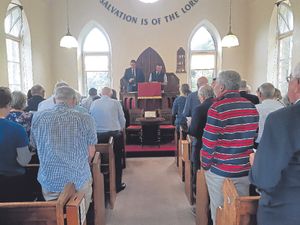God in the whirlwind
David F. Wells
IVP, 272 pages, £14.99
ISBN: 978-1-78359-033-9
Star rating: 5
This book is highly recommended. It is a careful exposition of the basic gospel message, standing firmly in the Reformed tradition, but set against the challenging backdrop of contemporary western culture.
Wells characterises contemporary culture as therapeutic and psychological. Subjective, feel-good emotions are given pride of place, while God is redefined as exclusively loving, accepting and non-judgmental. He has become a God valued only as the provider of those psychological benefits which make recipients happy.
Wells shows this to be a far cry from the biblical God, whose love is inseparable from his holiness. Yet it is so easy for the church to capitulate to this redefined God of modern culture, offering merely therapeutic benefits to worshippers. Instead, the church has the duty to confront western culture with the true gospel.
First, Wells traces the similarities and differences between the Old and New Testaments. The main difference is that themes which were typified in the Old Testament reach completion and fulfilment in Christ.
The subsequent two chapters address the biblical meaning of God’s love and God’s holiness. The modern tendency to separate God’s love from his holiness and from the atonement is shown to be inadequate. The contemporary view of holiness as something cold, aloof and repulsive is roundly rejected.
The remaining chapters discuss the biblical truths of justification, sanctification, worship and service. Each is initially related to the truth of God’s holy love, before the wider context of our chaotic and distracted world in which people have so much and yet feel so empty. So many modern emphases are diametrically opposed to biblical truth.
Whereas the modern focus is to feel good, God’s aim in redeeming sinners is that we should be good. Whereas today’s emphasis is on self-realisation, the Bible teaches self-mortification.
Wells highlights the danger of the church coming to resemble the world, replacing the preaching of God’s Word by therapeutic techniques, and downgrading worship into a social occasion or time of personal enjoyment. However, the more the church resembles the world, the less reason there is for anyone to attend church.
I would argue that all called to preach the gospel should read this book. It will certainly help us think through how we can communicate more effectively in the present situation.
Jonathan Bayes
Thirsk




















